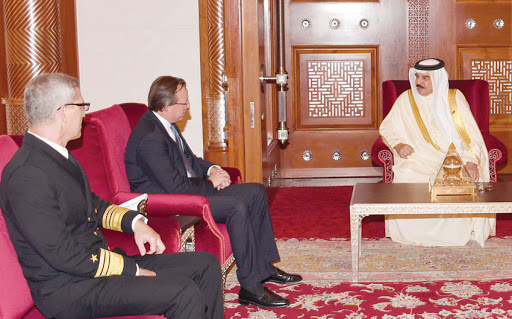It is true that the Kingdom of Bahrain has a long-standing relationship with the United States —one that is fundamentally based on arms sales, military partnerships and geopolitical strategy. This alliance however, does not excuse the United States’ noted silence in the wake of the conspicuous and ongoing human rights violations being committed by Bahrain. These violations span from arbitrary arrests to state-sanctioned rape, torture, and extrajudicial executions, some of which are set to happen in the near future if action is not taken to stem these terrible atrocities.
Despite these prevalent ongoing issues, the Trump Administration continues to authorize arms sales to Bahrain on the grounds that they are a major non-NATO ally. However, since President Trump’s election, there have been troubling incidences of dubious monetary transactions between the Bahraini government and President Trump. One early example: the Bahraini Embassy booked a massive event at the Trump International Hotel between the time of his election and inauguration. As stated in the Foreign Emoluments Clause of the Constitution (Article 1, Section 9), no federal office holder can accept money without the express consent and approval of Congress — which President Trump did not have, and still does not, at the time of this transaction or any of the others occurring in the future regarding his chain of hotels. This adds another dimension of questionability to this administration’s persistent and substantial arms sales to Bahrain.
Additionally, just last September, President Donald Trump hosted the Crown Prince of Bahrain in the White House with the intention to discuss trade adjustments, maritime security, and other security details in the region. However, at no moment did they mention Bahrain’s complete disregard for the recommendations pushed forth by the United Nations Human Rights Council in 2017 – several of which were signed by the United States itself.
In fact, according to recent Foreign Agents Registration Act (FARA) documents, lobbying firms such as the Sonoran Policy Group, which represents Bahrain, stated that they “had meetings and interactions with US administration officials and Congressmen for the Embassy of Bahrain on matters related to defense.” Of the many offices that were met with, two included Representatives Brad Sherman and US Trade Representative Robert Lighthizer. Interestingly, the former of the two is currently the Chairman of the Foreign Affairs Subcommittee on Asia, the Pacific, and Nonproliferation and has in the past “lauded” the efforts of Bahrain to establish “regional security,” but has never made any public mention of human rights.
In addition to the meetings, firms employed by Bahrain have made hundreds of donations to members of Congress in both houses and in both parties, including $2,500 to Senate Majority Leader Mitch McConnel’s last reelection campaign. It is hardly surprising there has been no progress in successfully passing a joint resolution to condemn Bahraini atrocities and block arms sales. Between the geopolitical importance of our alliance, the economic importance of our arms sales and the political importance of these countless donations, Bahraini interests are deeply entrenched in Washington DC.
There is a real danger in the United States turning a blind eye to the violations committed in the Kingdom of Bahrain. However, there is perhaps even more danger in ignoring the efforts of the Bahraini government to establish personal relationships with key, strategic players in Congress and the White House. American foreign policy towards Bahrain should be carefully crafted by American experts to best represent American interests and ethical standards, not crafted by Bahraini lobbyists for the interests of the Bahraini regime.





